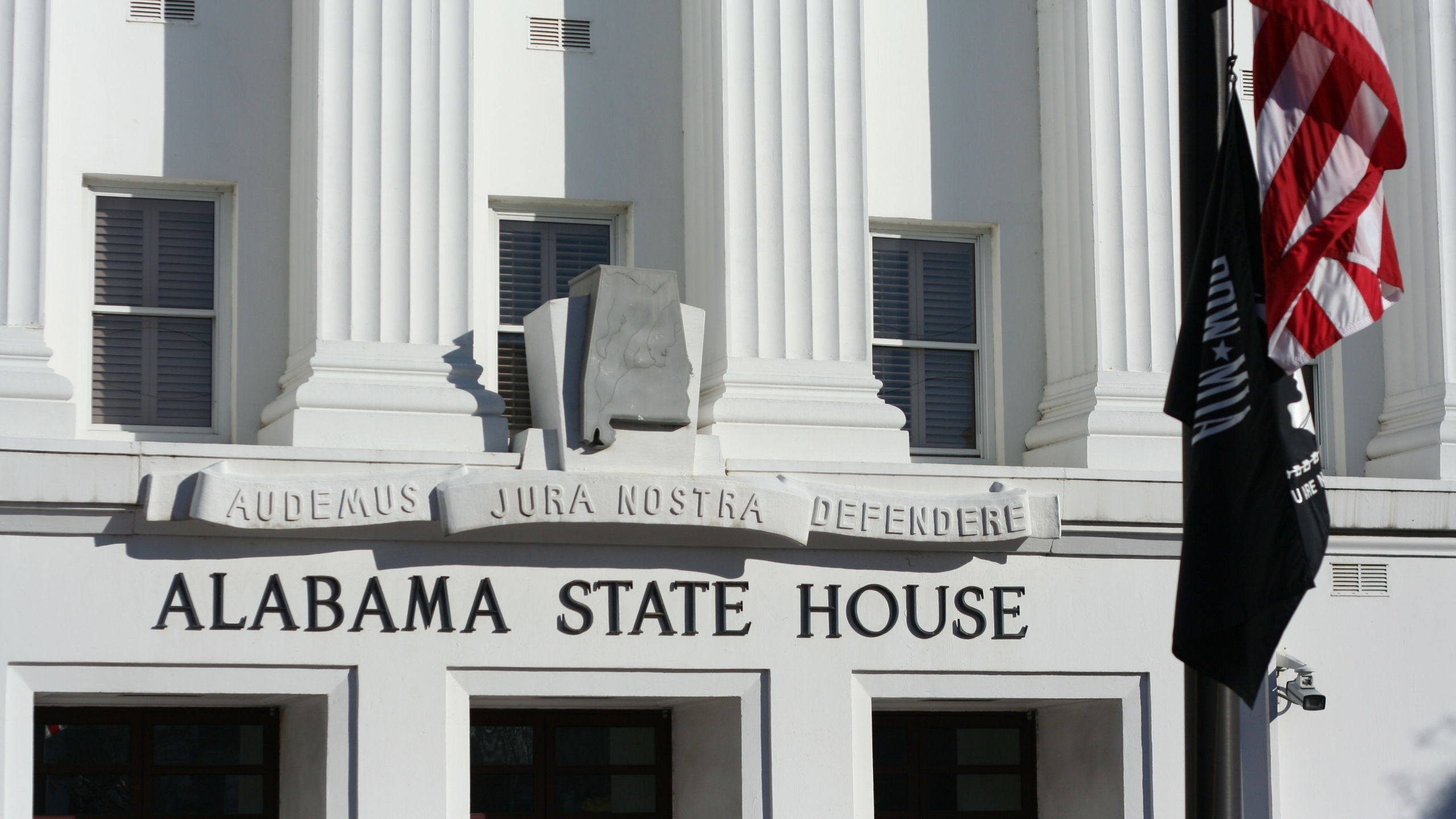The Alabama House of Representatives on Tuesday passed the largest state General Fund budget in state history. The $2.4 billion fiscal year 2022 budget passed by the House on Tuesday includes a two percent raise for state workers.
The state General Fund budget, House Bill 309, is sponsored by state Rep. Steve Clouse, R-Ozark, who chairs the House Ways and Means General Fund Committee, which is tasked every year with writing the General Fund budget.
Alabama uses an archaic budgeting system where the state General Fund budget deals with non-education items including prisons, forensics, law enforcement, courts, Medicaid, mental health, the historical commission, archives, the Department of Human Resources and others. The Education Trust Fund budget is the budget that deals with education. The General Fund begins in the House and then goes to the Senate, while the Education Trust Fund budget originates in the Senate and then goes down to the House.
There is over $4 billion in revenue that is outside of the budgeting process. The gas tax dollars, for one example, go to the roads and bridge fund, outside of the two budgets. The Public Service Commission is funded by utility taxes. The PSC pays its own costs and then sends a large overage back to the General Fund. The secretary of state’s office makes enough in business filing fees to pay for all of its own costs, without a line item in either budget.
Clouse said the fiscal year 2022 General Fund budget at $2.4 billion “is the largest general fund in (state) history.”
“Before the ’09 recession hit, we were at $2.2 billion, and within four years we were at $1.8,” Clouse said. “We are putting things back together here.”
Rep. Arnold Mooney, R-Indian Springs, said to Clouse: “Thank you for listening to us about proposals to get the state economy moving.”
Clouse said that there is an appropriation to get the Mercedes electric vehicle battery plant up and running.
Rep. Wes Kitchens, R-Arab, thanked Clouse and said that the money for aviation “will help with the matching funds for local airports and will help draw some of that down from the federal level.”
Rep. Merika Coleman, D-Midfield, said: “I want to come up and thank you for the allocation for the Human Trafficking Task Force. That is a non-partisan issue. The whole task force does yeoman’s work.
“All 67 counties in Alabama have some issues,” Coleman said. “It is important that all of us do our part to combat human trafficking.”
Clouse introduced a committee substitute which was adopted 98 to 0. That budget was further amended on the floor.
The budget package of bills passed by the House on Thursday included HB320 by Rep. Kelvin Lawrence, D-Hayneville, a two percent pay raise for state workers not in education. Education employees are under the ETF budget, which has not left the Senate yet.
The pay raise passed 100 to 1.
The House also passed a supplemental appropriation that directs federal bailout dollars for local governments from the American Rescue Plan, being voted on in the U.S. House of Representatives, to the Department of Revenue, which will then pay those dollars out to the local governments.
“That all has to be spent in 30 days,” Clouse explained, “Or it goes back to the federal government.”
Speaker of the House Mac McCutcheon, R-Monrovia, said to Clouse: “Thanks to you and the General Fund committee for the hard work that you have done, and I want to thank you for getting it out so fast.”
“This whole year has been very complicated as you know,” Clouse said. Before the spring break in a year ago in the 2020 session, “We left thinking everything was great with the general fund. Then COVID hit. We came back in May and cut out the pay raises. We had a lot of ambitious goals with revenues at record highs and had to put those ambitions plans on hold.”
“We came into this session in pretty good shape,” Clouse said.
Clouse explained that the General Fund was actually helped somewhat by the federal pandemic assistance.
“Because of the virus they did raise the amount that the feds pay versus the state for Medicaid,” Clouse said. “That six percent saved the state $50 million.”
Clouse explained that the lower costs for Medicaid in this budget “helped us in Correction and the Pardons and Paroles where we had some issues with their former director.”
COVID-19 also had an unexpected benefit for the General Fund.
“The SUT played a very crucial role because of the COVID people were staying at home ordering online,” Clouse explained. “The General Fund gets 75 percent of those dollars. Education gets 25 percent. It was very crucial.”
HB309 and the other bills in the budget package now go on to the Senate.
“They’re going to make some changes, we know that,” Clouse said. “We have a good working relationship.”
Passing the two budgets is the primary constitutional responsibility of the state Legislature.
Senate Majority Leader Clay Scofield, R-Guntersville, predicted Friday that the Education Trust Fund budget would be released out of committee and passed by the Senate by Thursday, March 18. The two 2022 budgets go into effect on Oct. 1. Thursday will be day 14 of the 2021 Legislative Session.





















































